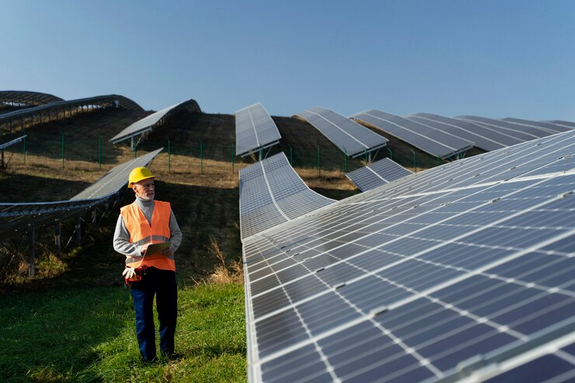Introduction:
Solar energy has emerged as a promising and sustainable alternative to conventional energy sources, significantly contributing to global efforts to combat climate change. As the solar industry continues to expand, an often overlooked aspect is the decommissioning of solar panels. Unlike their operational lifespan, solar panels do not last indefinitely, and their end-of-life management is a critical consideration in ensuring the environmental sustainability of solar power. This article delves into the complex landscape of solar panel decommission, exploring the challenges, methods, and environmental implications associated with the process.
The Lifecycle of Solar Panels:
Understanding the need for decommissioning requires insight into the lifecycle of solar panels. Solar panels typically have a lifespan of 25 to 30 years, during which they harness sunlight to generate electricity. Over time, however, various factors such as degradation, physical wear and tear, and technological advancements render these panels less efficient. As a result, decommissioning becomes inevitable to replace outdated systems with more advanced and efficient technologies.
Challenges in Solar Panel Decommissioning:
Environmental Concerns:
Decommissioning solar panels raises environmental concerns, primarily due to the presence of hazardous materials. Many solar panels contain materials like cadmium, lead, and silicon compounds, which, if not handled properly, can leach into the soil and water, posing risks to ecosystems and human health.
Technological Obsolescence:
Rapid advancements in solar technology lead to the obsolescence of older solar panels. Decommissioning becomes necessary to replace outdated systems with newer, more efficient models. However, managing the disposal of obsolete technology presents challenges in terms of e-waste management and recycling.
Methods of Solar Panel Decommissioning:
Recycling:
Recycling stands out as a key method for mitigating the environmental impact of solar panel decommissioning. Through advanced recycling processes, materials such as glass, aluminum, and silicon can be recovered and reused in the manufacturing of new solar panels or other industries. Implementing effective recycling programs is crucial for minimizing waste and maximizing resource utilization.
Repowering:
Repowering involves upgrading or replacing components of existing solar installations to enhance their efficiency and extend their lifespan. This method aims to optimize the use of existing infrastructure while incorporating newer technologies. Repowering can be a cost-effective and environmentally friendly alternative to complete decommissioning.
Extended Producer Responsibility (EPR):
EPR is a policy approach that holds solar panel manufacturers responsible for managing the end-of-life disposal of their products. By implementing EPR programs, manufacturers are incentivized to design products with recyclability in mind, promoting a closed-loop approach to the lifecycle of solar panels.
Environmental Implications:
Resource Conservation:
Proper decommissioning, including recycling and repowering, contributes to resource conservation by reducing the demand for raw materials. Recovering valuable components from decommissioned solar panels helps minimize the environmental impact associated with the extraction and processing of new materials.
Waste Reduction:
Effective decommissioning methods help mitigate the generation of electronic waste. By recycling components and reducing the disposal of intact solar panels in landfills, the environmental burden associated with e-waste is significantly reduced.
Conclusion:
As the world continues its transition towards renewable energy, the decommissioning of solar panels emerges as a crucial aspect of ensuring the long-term sustainability of solar power. By addressing the challenges associated with environmental concerns, technological obsolescence, and e-waste management, the solar industry can pave the way for a more sustainable future. Implementing responsible decommissioning practices, such as recycling, repowering, and embracing extended producer responsibility, is essential for minimizing the environmental footprint of solar energy and fostering a circular economy. As we navigate the dynamic landscape of renewable energy, a comprehensive approach to solar panel decommissioning is paramount in preserving the positive impact of solar power on our planet.





Comments